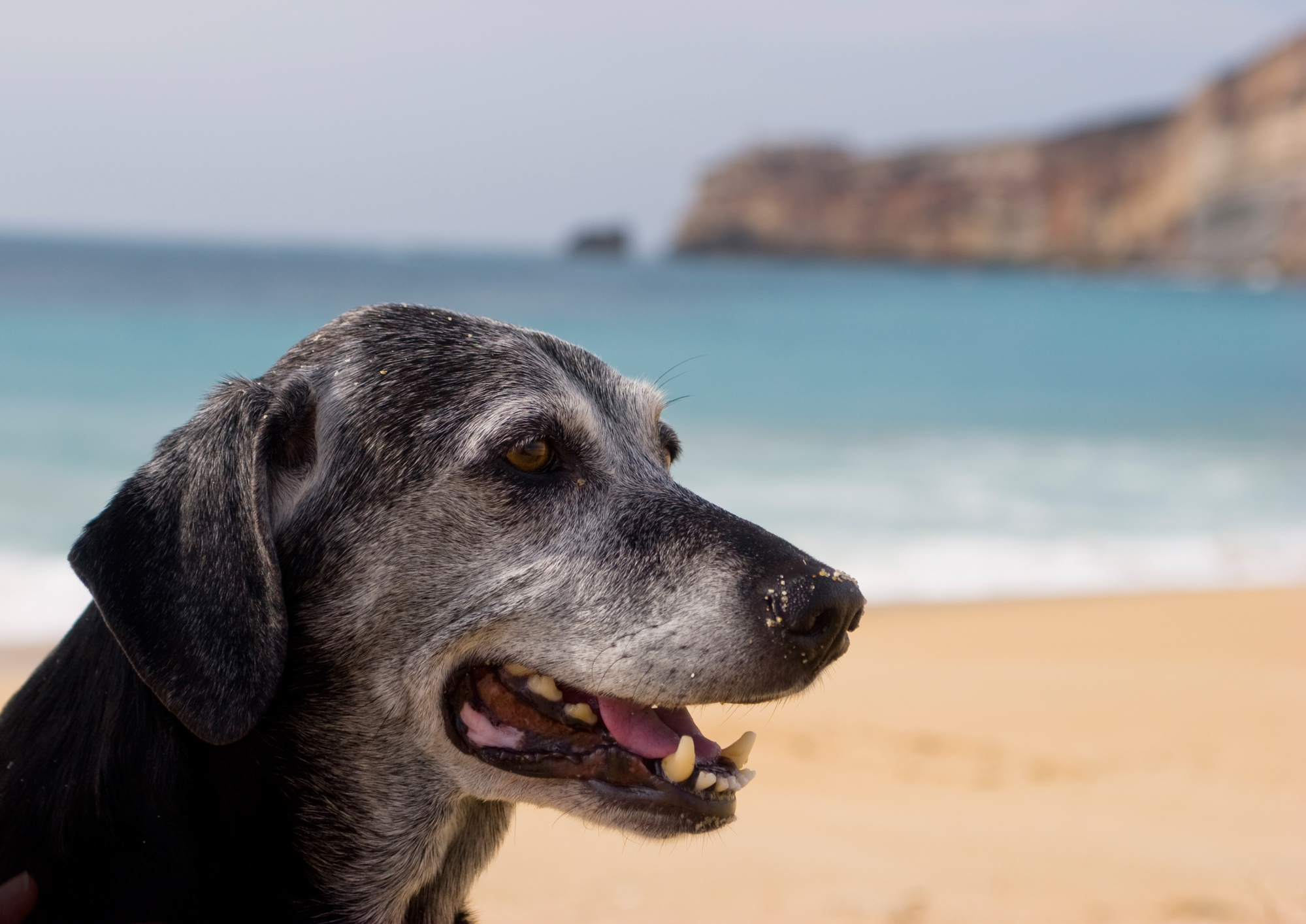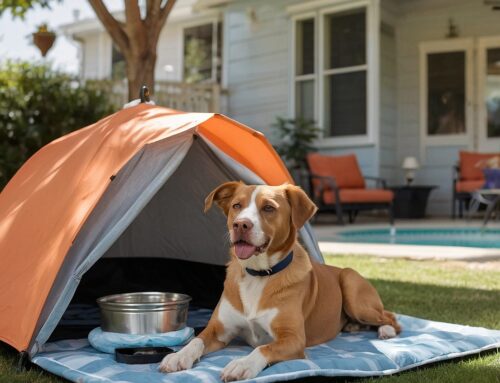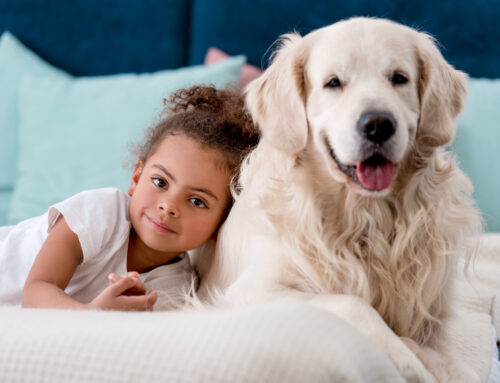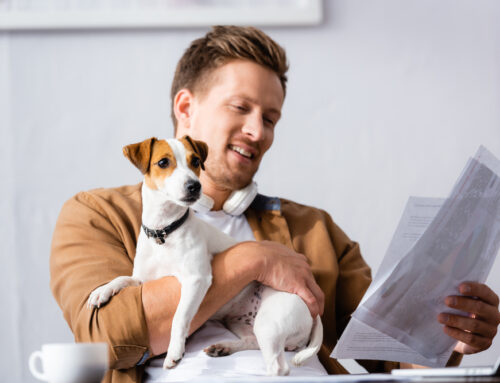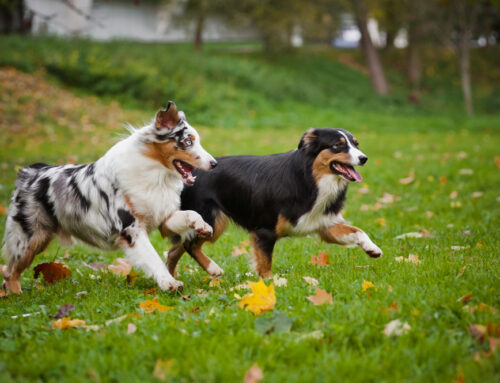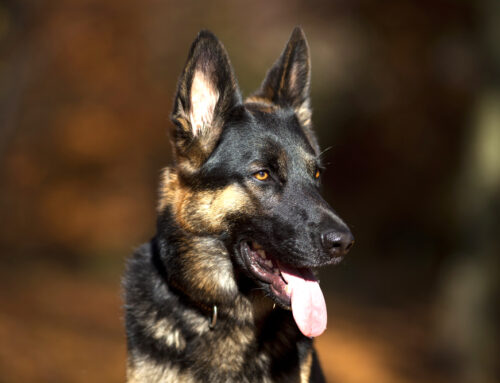When our faithful and treasured companions grow older, it’s a whole new ballgame in every aspect of their care: what to feed them, what kind of exercise they need, and what kinds of changes occur in their body language. This article addresses what you need to know to take good care of your senior dog as well as how to introduce a new puppy into your home with your senior dog.
When Does a Dog Officially Become a “Senior”
The accepted age for when a dog is considered “senior” is about 7 years old. However, this varies from dog to dog as well as breed to breed. It is a known fact that big dogs age faster than smaller ones, so the long-accepted idea that dogs age 7 years for every human year is not grounded in fact.
At what age your dog reaches senior status depends on a few factors that your veterinarian can help you understand. These include any changes in your dog’s weight, appetite, and overall behavior.
Important Ways to Care for Your Senior Dog
All dogs need to know they are loved and cared for, and that is even more true for the senior dog. Your senior dog has given you many years of unconditional love and she deserves special care now that she’s reached her twilight years.
Diet
Managing a dog’s diet at any age can be a complex process, especially for the senior dog. You may find that your senior dog has put on some weight even though she may not be eating as much. This is due to a slowing of her metabolism which commonly occurs in older dogs. Since being overweight can cause a host of health issues, it’s a good idea to reduce the number of calories you are feeding her.
If you decide to change her foods for something adapted especially for senior dogs, it’s important to do so gradually by mixing the new food with her existing food over a period of about 7 days.
Food and Water Bowls
Arthritis is a common affliction affecting older dogs, and this includes the neck. This means that eating and drinking from their standard, on-the-floor bowls may be increasingly difficult. Consider purchasing an elevated feeding bowl set to alleviate any neck strain.
Activity
Your older dog has slowed down and does a lot more sleeping than in her younger years. It is easy to let her lounge about, but she will age faster if she doesn’t get the exercise she needs to maintain her fitness and muscle mass. Shorter, gentler walks and slower games of catch or Frisbee will keep her in shape while not taxing her physically.
While exercise is a must, do keep a close eye on any differences in her movement that might indicate pain. If you do, get her to the vet as soon as possible.
Physical Exam
The norm for a senior dog is 2 physical exams per year. Along with this is the need to have her blood work checked to make sure her organs are healthy. More frequent exams mean potentially life-threatening issues can be caught and dealt with before they become more serious.
Strollers
For dogs who have serious trouble getting around but who, like all dogs, need to get out and about, consider getting a stroller. This way she’ll enjoy the fresh air, sights, and sounds to keep her mind active and life more interesting.
Should You Bring a Puppy Home?
When anyone’s dog begins to age, it’s common to think about introducing a new puppy. But is it a good idea? Here are some things to consider.
How Much Time Do You Have?
These days, when so many people work from home, it’s easier to bring a new puppy into the household. However, if you have a busy life where you are not home for large chunks of time, it may not be ideal for the puppy or your senior dog. Timing is everything for a four-legged newcomer.
What is the Health Condition of Your Senior Dog?
If your older dog requires a lot of care or suffers from things such as arthritis, vision or hearing loss, and canine senility, a puppy may cause her unnecessary stress. On the other hand, a puppy may provide new activity and stimulation for a senior that’s in good health. Understanding the temperament of your aging dog is the best course of action.
What is Your Senior Dog’s Personality?
Matching personality styles is a critical factor in whether a new puppy will be compatible with your senior. By now you know your senior’s personality quirks, and if she has always been skittish, submissive, dominant, or aggressive, you will need to ensure your puppy’s personality will mesh well with hers. Not only do you want to keep your senior dog safe, but the same holds true for keeping a puppy safe from an older dog who may want peace and quiet.
How Should You Integrate Your Puppy Into Your Home With Your Senior?
So you’ve decided to purchase or adopt a new puppy. It’s critical that you don’t simply throw the puppy and senior dog together without a carefully arranged plan. Some important steps include the following.
The Best Way to Meet and Greet
There is an art to bringing 2 dogs together for the first time. It’s essential that you have your puppy and senior meet on neutral territory. A park is a great example of a place without the sights and smells of your home.
Set Up an Area for the Puppy
Since your puppy is probably not housebroken, it’s best to keep him in a small area, such as a powder room or section off a small area of a larger room with baby gates. This also gives your senior dog the chance to sniff and get to know the puppy without being initially overwhelmed.
At this time, it’s also important to start looking into dog trainers who specialize in puppy training. Dog training is an essential milestone at any age, including puppyhood. Training programs like the Yappy Puppy Program may be a good fit.
Gradually Increase Their Time Together
Once they’ve sniffed at each other safely for several days, allow them to be together without separation. However, the caveat here is to never let them be together without your focused supervision until you’re sure they get along. This may take several weeks. Do watch for body language signals and vocalizations that either mean harmony or discord.
Remember Your Senior Dog Was There First
What this means is that your senior deserves the respect garnered by her age in her home. Translated – she gets everything first: treats, meals, leashed up, and more. Whatever you do for your dogs, do it for her first.
And Finally
Puppies are cute, adorable, and they bring rambunctious joy into the home. However, remember that your senior dog was once that cute, adorable, and rambunctious pup who has since given you years of love and devotion. Now it’s time for you to give her all that and more as she approaches those golden years.



